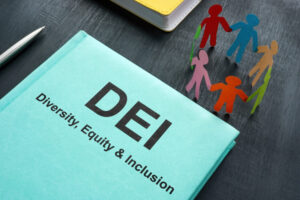The Shifting Sands of DEI Initiatives: Buttigieg’s Unexpected Critique
In a surprising turn of events, former Transportation Secretary Pete Buttigieg recently voiced criticisms of Diversity, Equity, and Inclusion (DEI) initiatives during a speech at the Democratic National Committee (DNC). This forum, which previously saw some of its members attributing electoral losses to factors like racism and misogyny, now finds itself grappling with the ramifications of policies it once championed.
From Advocate to Critic: Buttigieg’s Journey
Buttigieg’s recent move to Michigan—which many speculate may be a start of his campaign for governor—has sparked discussions about the Democrats’ evolving stance on DEI. He openly questioned what diversity truly means. "Is it about caring for people’s different experiences to ensure no one is mistreated?" he asked, "Or is it forcing people through a training that feels pulled from a satire about Portland?" His remarks suggest a growing discontent with the traditional DEI training approaches that have been critiqued for becoming performative rather than substantive.
Patterns of Political Shift
Could it be that the Democratic Party is recognizing the shift in voter sentiment? Buttigieg’s statement that DEI initiatives lead to a dissatisfaction that "creates Trump Republicans" highlights a significant point of contention: voters prefer to be evaluated based on character and qualifications, rather than identity metrics. This concern resonates with a growing number of Americans who feel disenfranchised by the overly politicized nature of workplace policies.
Buttigieg, a quintessential example of a DEI hire—recognized more for his identity than his qualifications—ironically embodies the very changes he now criticizes. Appointed as the first openly gay Cabinet member in history, many questioned the merit-based rationale behind his selection to lead the Department of Transportation (DOT). His track record as the mayor of South Bend, Indiana, while commendable, did not scream "best and brightest" for such a crucial federal role.
The Consequences of DEI Initiatives
Recent developments raise alarm bells about the implementation of DEI quotas. The Federal Aviation Administration (FAA) has voiced its concerns, attributing them in part to the controversial policies, implying that such practices led to workforce shortages in critical roles, ultimately affecting aviation safety. Senator Markwayne Mullin pointedly criticized the approach, emphasizing the need for hiring based on merit over quotas. With class sizes in training programs plummeting due to DEI demands, the implications of compromised training cannot be overstated.
A New Narrative
As Buttigieg pivots away from his previous stance, it raises a critical narrative: are politicians simply shifting their rhetoric to align with changing public sentiment? Once the standard-bearer for DEI reform, Buttigieg now warns against the pitfalls of becoming "caught up in vocabularies" that overshadow the core values of shared governance and community building.
In his pursuit of the minority vote ahead of his presidential campaign, his pleas for support from Black voters were both candid and calculated. He emphasized his previous constituency in South Bend, showcasing the political dance that often characterizes electoral strategies.
The Future of DEI in Politics
As the political landscape evolves, expect a ripple effect. Buttigieg’s comments signal a potential recalibration among progressives who may begin to publicly distance themselves from what they previously endorsed. It’s conceivable that we are at the dawn of a new era where discussions about identity politics will take a backseat to more streamlined, merit-based evaluations.
Conclusion: A Call for Genuine Engagement
At Extreme Investor Network, we encourage readers to remain analytical about such shifts. As politicians like Buttigieg navigate the complexities of identity politics, we must champion a culture that values qualifications and character over mere categorical representation. It’s time for a more substantial conversation about inclusion that goes beyond mere compliance and engages with the real issues facing the American public.
Stay tuned as we continue to explore economic implications and societal discussions affecting our investment landscape.

